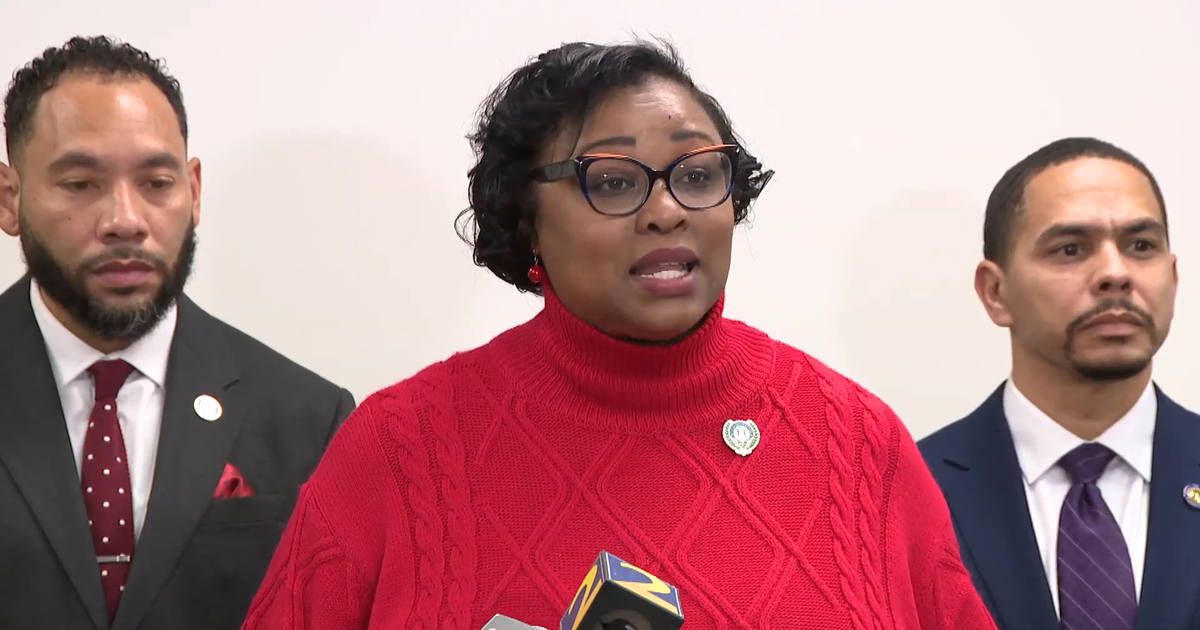Massachusetts Senate moves to protect abortion providers from "bounty" laws
By Chris Lisinski, STATE HOUSE NEWS SERVICE
STATE HOUSE, BOSTON, May 26, 2022 (State House News Service) – Reproductive and gender-affirming health care providers in Massachusetts would gain new protections against legal action brought in other states, as would out-of-state residents who travel here to seek services including abortion, under a budget amendment the Senate adopted Wednesday.
Senate Democrats pitched the measure as a bulwark against Republican-led efforts in other states to curtail abortion access and limit treatment options for transgender or nonbinary patients, warning that the U.S. Supreme Court appears poised to overturn Roe v. Wade as other states take steps to expand enforcement outside their own borders.
Sen. Cindy Friedman of Arlington said lawmakers in Texas and Oklahoma have enacted "bounty-style provisions" empowering their residents to pursue private legal action against fellow Texans or Oklahomans who travel to Massachusetts for reproductive and gender-affirming care as well as against the Massachusetts workers who provide those services.
"We are now faced with a situation where another state, in state laws enacted by their Legislature, is threatening the rights of law-abiding residents in our commonwealth for engaging in activities legal under our laws enacted by our duly elected Legislature here in Massachusetts," Friedman said on the Senate floor. "This is an egregious and direct attack on a state's ability to make their own laws and protect their own residents."
The action comes amid an increasingly pitched battle over access to abortion and other reproductive health services and over how states support their LGBTQ residents. According to Friedman, 26 other states have laws in place or bills pending "to significantly restrict access to reproductive care," and another 15 states have laws or pending bills restricting gender-affirming care.
While debating its fiscal 2023 state budget, the Senate adopted a Friedman amendment that she said would create a suite of new safeguards for both patients and providers. The Senate adopted the amendment on an unrecorded voice vote and no senators spoke in opposition to the proposal.
Doctors, physician assistants, pharmacists, nurses, psychologists and social workers would be insulated from facing any licensing consequences as a result of providing reproductive care -- which covers not just abortion but also contraception, miscarriage management and other pregnancy-related services -- or many supportive treatments for gender dysphoria, according to an amendment summary provided by Senate President Karen Spilka's office.
Massachusetts law enforcement agencies would be prohibited from assisting any investigation by federal authorities, another state or private citizens related to legally protected reproductive and gender-affirming health care provided in the Bay State, and the governor in many cases could not extradite a person to a different state to face charges for an abortion or another protected service.
Courts would similarly be barred from ordering anyone in Massachusetts to testify or produce documents for lawsuits involving those practices, and judges could not issue any summons in a case concerning those health care services unless the offense in question would also violate Bay State law.
"The duly elected Legislature of Massachusetts has affirmed time and again that the people of the Commonwealth will have their fundamental rights preserved and protected here in our state, regardless of what happens at the federal level, or in any other state," Spilka said in a statement released after the vote.
Like Friedman, Spilka warned of a potential scenario in which a Massachusetts resident could face prosecution originating in another state "for exercising rights legal in our Commonwealth."
"We cannot, and will not, let this stand," she said.
The amendment also requires the Department of Public Health to establish a statewide standing order authorizing pharmacists to dispense emergency contraceptives, a step that supporters say will boost insurance coverage and make that a more accessible option.
State law already guarantees access to abortion, but in the wake of a May 2 Politico report publishing a leaked, draft U.S. Supreme Court decision that would strike down the federal abortion right enshrined in Roe v. Wade, Massachusetts legislative leaders pledged to explore additional action.
Rather than advance a standalone bill, Spilka opted to use the annual state budget to pursue expanded liability protections for reproductive health and gender-affirming care providers. While the House's position on the measures is not known - the issues will be part of a larger conference committee negotiation - the strategy is an attempt to tie the measure to a bill that will reach the governor's desk in the coming weeks.
Friedman told the News Service on Wednesday the measure wound up in the budget "because of the urgency of what's happening."
"Oklahoma just passed a law, Texas has passed it, there's the leak of the Supreme Court ruling on reproductive access for women, and it's all happening," Friedman said. "So we just felt like this was absolutely the vehicle in front of us to be proactive to protect our residents and protect our providers."
The House approved its version of the FY23 budget in April, before the draft court decision leaked and without any of the reproductive health or gender-affirming care language. Representatives would need to agree to the Senate's approach to put the measure before Baker.
Legislative leaders typically steer negotiations about a final budget bill into conference committees, and in recent years those deliberations have stretched well into the summer, sometimes failing to produce a final budget until after the fiscal year has already started.
Friedman said she does not know if there is support in the House for the exact measure the Senate adopted, but described "very, very strong support" for the 2020 law codifying the right to abortion care in Massachusetts, which the Legislature enacted over Baker's veto.
"Because this is so much an issue of our state's right to enforce our own laws and reflect the values of our state in our statutes, I think that's what's going to rally people, and I think that will ring true for the House as well," she said.
Baker said this month he is "absolutely open to discussing protections" for reproductive health providers, describing himself in the wake of the draft Roe ruling leak as "very concerned about what this means, not so much for people in Massachusetts but for people in other states."
The Beyond Roe Coalition, a constellation of advocacy groups that favor abortion access including the ACLU of Massachusetts, Planned Parenthood Advocacy Fund of Massachusetts and Reproductive Equity Now, praised the Senate for its vote.
"With the Supreme Court poised to overturn Roe and other state legislatures introducing abortion bans, it is more important than ever that our state leaders ensure meaningful access to abortion, contraception, and gender-affirming care for anyone who needs it," ACLU of Massachusetts Executive Director Carol Rose said in a statement. "Everyone -- no matter where they live or how much money they have -- should have the freedom to make health care decisions for themselves and their families."







